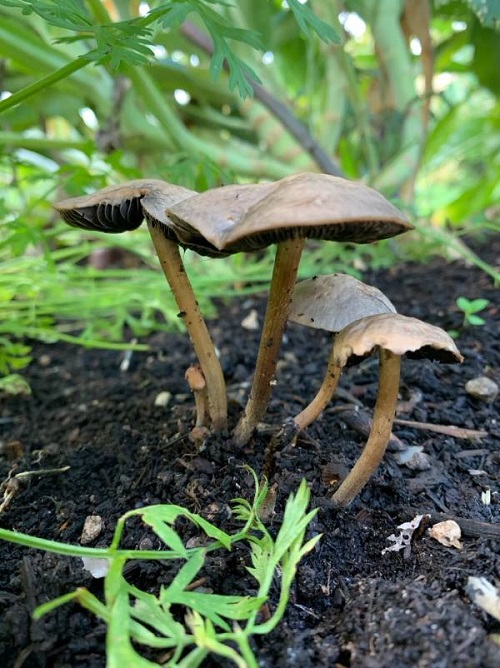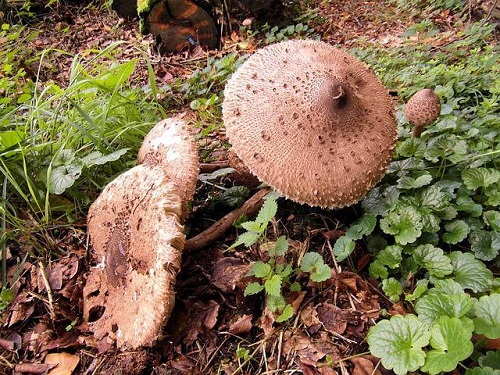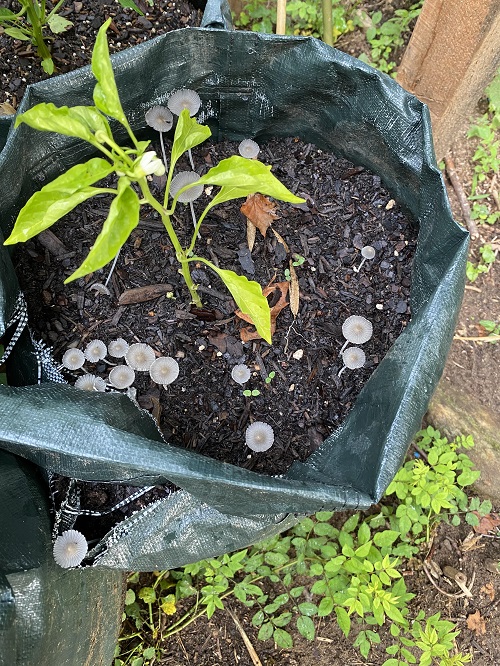Can You Compost Mushrooms? Well, you can! Keep on reading to know and also about the Plants that Don’t Like Mushrooms.
Can You Compost Mushrooms? If you too have this question then we are here with all answers you need. Also, keep on reading to know about Plants that Don’t Like Mushrooms.
Read about Growing Mushrooms in Coffee Grounds here
Can You Compost Mushrooms?

So, can you compost mushrooms? Yes! Mushrooms are organic materials and can contribute to the nutrient content of the compost. They contain valuable minerals and organic matter that can enrich the composting process.
- Fresh mushrooms or spent mushrooms that are no longer edible can be added to the compost. However, if the mushrooms are cooked or seasoned, it’s best to avoid adding them, as the added oils, salts, or spices may not be suitable for composting.
- Chop or break larger mushrooms into smaller pieces to speed up their decomposition process in the compost pile. This helps them break down more efficiently and integrate with other organic matter.
- Mushrooms are relatively high in nitrogen, so be sure to add them along with sufficient carbon-rich materials like dry leaves, straw, or shredded paper to maintain a proper balance.
- Mushrooms require a moist environment to decompose effectively. Regularly turning or mixing the compost helps provide the necessary oxygen and prevents the pile from becoming overly compacted.
Find How to Grow Magic Mushrooms here
Plants that Don’t Like Mushrooms

Mushroom composts have a naturally high pH, which can make the soil more alkaline. This alkalinity may not be suitable for plants that prefer acidic or neutral soil conditions. Acid-loving plants, such as azaleas, rhododendrons, and blueberries, may not thrive in alkaline soil.
Certain types of mushroom compost can contain high levels of salts. Excessive salt content in the soil can lead to salt build-up and cause damage to plant roots. Salt-sensitive plants like Azaleas, Rhododendrons, Blueberries, Cranberries, Strawberries, Blackberries, Raspberries, Citrus trees, Avocado, Olives, Grapes, Apples, Pears, and Beans may suffer from salt stress if exposed to compost with high salt levels.
Plants that Benefit from Mushroom Compost

1. Vegetables
Tomatoes, peppers, cucumbers, lettuce, and zucchini can benefit from nutrient-rich compost, which promotes healthy growth and enhances soil fertility.
2. Flowers
Roses, marigolds, petunias, and geraniums are just a few examples. Mushroom compost enriches the soil, providing essential nutrients that support vibrant blooms and overall plant health.
3. Herbs
Basil, parsley, mint, lavender, and many other herbs can benefit from the nutrient content of mushroom compost.
Note: Mix 1 part mushroom compost with 2 or 3 parts of the growing medium.
Here are the Best Composting Tips to Create a Perfect Compost
Nutrient Rich Alternatives to Mushroom Compost
1. Worm Castings
Also known as vermicompost, are produced by earthworms feeding on organic matter. They are highly nutritious and contain beneficial microorganisms. Worm castings can improve soil structure, enhance nutrient availability, and promote healthy plant growth.
2. Composted Manure
Well-rotted manure from herbivorous animals, such as cows, horses, or chickens, can be an excellent source of nutrients for plants. It enriches the soil with organic matter, nitrogen, phosphorus, and potassium, among other essential elements.
3. Kitchen Scraps
Composting your kitchen scraps, such as fruit and vegetable peels, coffee grounds, and eggshells, can create a nutrient-rich compost that can be used as a soil amendment. Ensure that the composting process is well-balanced and complete to avoid any potential issues.
Want to Make Organic Fertilizers from Kitchen Scraps? Click here
4. Fish Emulsion
Fish emulsion is a liquid fertilizer made from decomposed fish. It is rich in nitrogen, phosphorus, and trace minerals. It can be diluted and applied directly to the soil or used as a foliar spray to provide a quick nutrient boost to plants.


